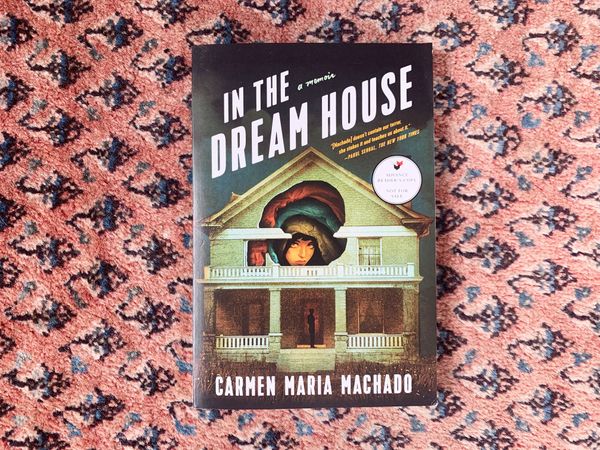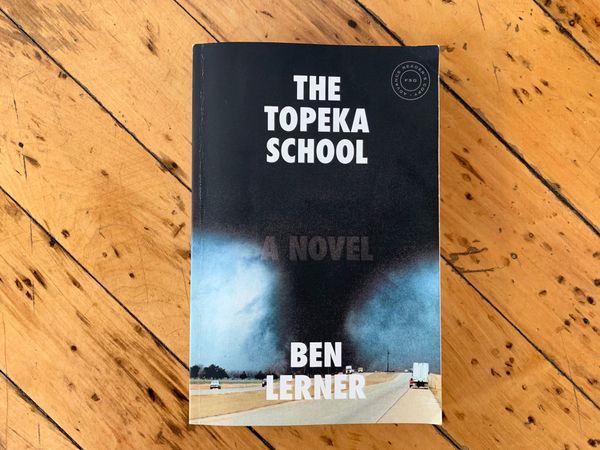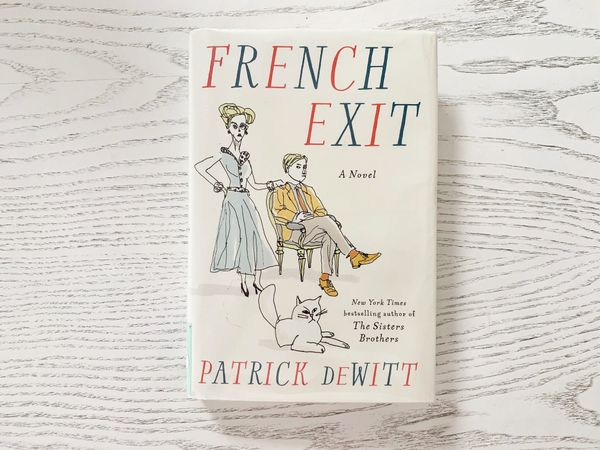
The only problem with September, which is an otherwise perfect month, is that it’s the last point in the year when a person in my latitude can comfortably read outside. I spent the past 30 days at my favorite spot, a particular seat in a Brooklyn park that snakes along the East River. It’s not the world’s greatest park — more of a desultorily landscaped sidewalk — but it offers a few things that are rare in New York City: plentiful seating, seemingly zero supervision, and an array of genuine organic smells (river, plants).
The coolest thing about the park is the gentle social engineering of the furniture arrangements. Each piece of bolted-down seating offers a unique opportunity for engagement. There are options for people who want to face north, south, or west, and for people who want to gaze at shrubbery, ferries, or other people. There are chaises for people who want to lounge alone, chair-and-table pairings for people who want to eat alone, multi-chair-and-table pairings for people want to eat with other people, benches for people who want to sit with other people, and my favorite situation: three individual chairs that are oddly close to one another without actually touching, for people who are averse to benches but still want to be within grazing distance of a stranger. All last month, I sat in one of those chairs and waited to see if anything interesting happened. Nothing did, except the books.
In the Dream House by Carmen Maria Machado
Memoir, November 5
I’m wary of any book described in its marketing materials as “prismatic” for the same reason I’m skeptical of foods described as “deconstructed” in restaurants. The original version is usually better. But I would not have Carmen Maria Machado’s memoir any other way than how it is: the recollection of an agonizing relationship in 146 chapters (I think I counted right), each of which advances the story through a different trope. There’s a noir chapter, a road-trip chapter, a confession, a stoner comedy, a soap opera, a picaresque, and so on. The bildungsroman chapter is about the teenage Machado’s confusing relationship with an associate pastor at her church and how it lays the groundwork for future — also confusing — relationships. The spy-thriller chapter is about harboring a terrifying secret. The romance-novel chapter is about saying I love you.
Here’s the tale. In grad school, Machado meets a charismatic blonde waif and the two fall in love. Everything starts well, but soon “incidents” begin to accrue around the girlfriend: tyrannical jealousy, gaslighting, a hostile grabbing of the wrist, the slamming of household things, the targeted throwing of objects. At some irrevocable moment, this person’s identity changes in Machado’s eyes from “girlfriend” to “abusive girlfriend,” and part of the book’s point is that the switch can happen way later than a rational person might expect.
The quality of the writing is — uh, I read it with my tongue rolling out of my mouth like a red carpet, cartoon style. There are flourishes. There are footnotes. There are chapters that are one sentence long. It’s like your inner monologue while watching Al Pacino in The Devil’s Advocate: “Ha! Well this is really a performance — kinda nuts — can’t believe he’s getting away with it — wtf — no one else could do this.” (The Devil’s Advocate is one of my favorite movies, in case anyone is unclear on the horsepower of this compliment.)
If your initial reaction to a memoir of untrammeled genre play is “Not for me!,” I encourage you to dip a toe anyway. Unlike the teenage Machado and her pastor, the formal gyrations of the book are not remotely confused and therefore not remotely confusing. It coalesces in real time into a moving, funny, violent portrait of a complicated person in a complicated relationship. She writes the way I wish I were capable of feeling!
RIYL: Wayne Koestenbaum, Wesley Morris, Into the Woods (play or movie), this, the canonical cover of Roy Orbison’s “Crying”
The Topeka School by Ben Lerner
Fiction, October 1
Whenever a book or movie or TV show crosses a certain threshold of influence, a seepage of articles will emerge to cite what the book or movie is “really about.” You can Google any cultural product + “really about” to find examples (The Lion King is really about fascism; Harry Potter is really about trauma). By this formula, Ben Lerner’s new novel is “really about” toxic masculinity, but that’s just one blossom in a whole bouquet of themes, including the intricacies of high-school debate, lonesomeness, fame, violence, mental illness, the Westboro Baptist Church, migraines, and the Midwest.
At the center is Adam, a teenager who is peculiarly aware, fairly miserable, and committed to a weird haircut. Like a lot of precocious youths, he’s less in command of his intelligence than at the mercy of it. Jane and Jonathan Gordon are his parents. One is a feminist author, the other a shrink who specializes in drawing out reticent boys and men. Lerner looks at social literacy as a language available in various amounts to various people — some of the book’s characters lack a strategy of language, some master it to silly or malignant purposes. When I imagine the genesis of the novel, I picture his taking a mental snapshot of any contemporary newspaper and adding to his to-do list “Write abt how we got here.” The book is almost preposterously courageous, and it succeeds.
RIYL: William Faulkner, n+1, feeling certain that something is destroying your life and suspecting that thing is you
French Exit by Patrick DeWitt
Fiction, August 28, 2018
A friend who is a reliable engine of recommendations said to me, “There have been only a handful of comic-novel geniuses in history, and Patrick DeWitt is one of them.” I can’t evaluate the first half of the sentence, but the second part seems plausible. French Exit is about a rich widow who uses “breakfast” as a verb and keeps her adult son on an upsettingly short leash. (They live together and speak on the phone from their respective — and thank God for that — beds.) After the widow liquidates her fortune on hotel suites and vacation properties, she moves to Paris with the overattached son and disaster ensues. French disaster! This fits into the category of books you experience with great impatience because you’re simultaneously reading for pleasure and to get it over with so you can lend it to a specific person and find out what they think.
RIYL: Anthony Powell, Roald Dahl, small acts of sabotage, oversalted food, the movie Secretary, stifling the temptation to shoplift
WHY DON’T YOU…
BOGGLE THE NOGGLE of a child in your life, or the child in yourself, with Arm in Arm? I believe if I’d had access to this book as a youth, I would have grown up into a genius. Too bad.
“Cosy” up to a charming coming-of-age story set in English academia and BOHEMIAN ROME?
Unearth the story of a 1950S HOUSEWIFE who is also your new intellectual mascot?
Take another bite of Antarctica if you liked Where’d You Go, Bernardette? Because one account of an ECCENTRIC WOMAN on a frigid journey of self-discovery isn’t enough.
Read Mary Gaitskill’s ensorcelling novella about ME TOO?
Try a lost novel by a Viennese woman born in 1893 if you like Ottessa Moshfegh? It’s about an alienated chick who worries that she is WORTHLESS and STUPID. Who among us can’t relate!
SUGGESTED PAIRING
Pair the guaranteed future-cult-classic show Lodge 49 with a guaranteed future-cult-classic novel that has the best title of any publication in history.





